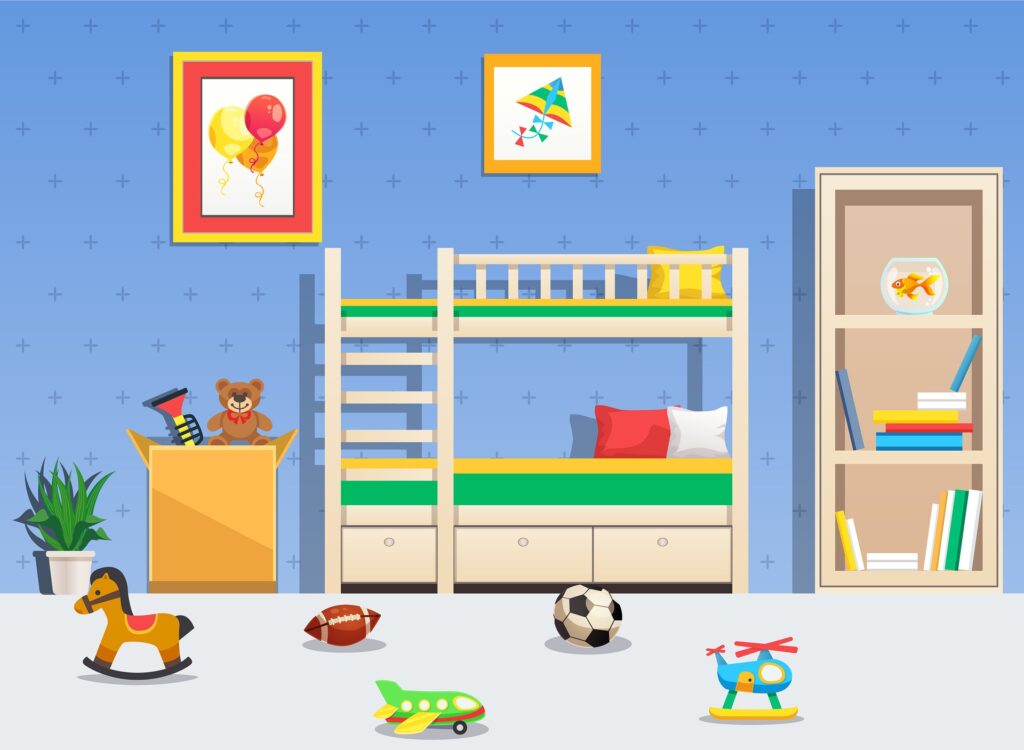
As a parent, the topic of room cleaning is an argument of the ages with our children. It starts at four and goes on until eighteen (or whenever they leave the house). There are reminders, consequences, complaining, and negotiations that occur on a weekly, if not daily basis. If I got paid a dollar for every time I told my daughter to “clean your room”, I would at least have $5,000 (she is only six).
When my daughter turned five, I began to expect her to clean her room (with appropriate expectations for a five year old). It was a struggle from the beginning., meltdowns, refusals, hiding toys, or putting things in giant piles. I began to feel frustrated because I was getting nowhere and her room was a DISASTER. I would take toys away, limit play time, set reward goals, and talk to her about why it is important to clean her room. Still… a messy room! Then it hit me… she has no idea HOW to clean a room. I have never taken the time to show her. Once, I did, our whole dynamic changed … and her room was clean! Here is what I di
1.Organize The Space With Them: Cube storage bins and shelving units are CRITICAL for any child’s room for children twelve and under. They store everything from small toys to games. They are easy for children to clean up and it is kind of fun organizing them as well. Amazon also sells cute bins with animal characters on them for some fun decorative elements. Set Up– Let your child help you decide how to organize their toys as soon as you implement the bins. This way they will know where everything goes and they will be more likely to put them in the same space.
2. Model Clean Up: Even with the bins in place, it is going to be hard for them to implement at first. When starting the process, my daughter often felt overwhelmed by the magnitude of her toys. She froze and had no idea where to start. Instead of having her clean up by herself, I initially modeled cleanup for her so she knew how to break down the process (no, do not do this more that 1-3 time or you will be creating a situation where your child never wants to clean their room). I started with each bin and went from there, showing her how to clean a space without feeling over whelmed.
3. Model Room Play Organization: Children need play boundaries. When she was working on cleaning her room independently, I would go in the room to play with her to show her what appropriate play looked like. I knew that if the room got out of hand messy, she would once again feel overwhelmed cleaning it. To help support this, we implemented guidelines for play: No more than 1 bin and 5 other toys out a a time. At five years old, she was able to grasp this.
4. Scaffold Clean Up Support: When she first started being independent with cleaning her room, I did not just model room cleaning and hope for the best. I helped her clean the room for a good two months. My support schedule looked something like this:
- Week 1- Help Clean Each Day
- Week 2- Help Clean Five Days
- Week 3- Help Clean Three Days
- Week 4- Help Clean Two Days
- Week 5- Help Clean One Day
- Week 6- Help Clean One Day
- Week 7-Watch Them Clean
- Week 8- Watch Them Clean
5. Be Patient: There are still days my now six year old daughter’s room is not super clean. What I can say, because of our play room organization policy, it is usually one bin and a handful of toys. This is easy for her to pick up and does not make her frustrated. There are very rarely arguments about keeping her room clean and I can see that she takes better care of her toys. An added bonus, I see her organization skills going to other areas of her room: clothes and shoes organization. When I taught her skills to organize her room, it was also teaching her how to organize and categorize information.
Cleaning rooms does not have to be an ongoing battle with your children. With a little bit of modeling, support, and planning on your part, you can teach your child how to organize their room and play space… keeping you both sane and happy 🙂 Play On!